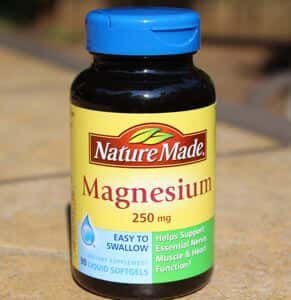
Adequate sleep is a cornerstone of good health, but far too many of us don’t get enough. We stay up late staring at screens, whether for work or entertainment. Perhaps we get up early for a long commute or maybe we work shifts. There is no end to the reasons to miss out on sleep, but the consequences could eventually be deadly. How do you cope? Might you take magnesium to get to sleep?
Magnesium as a Sleep Aid:
Q. I read about magnesium helping with sleep a couple of weeks ago in your column. Thank you for writing about this. I am very fit and healthy, but I have struggled with poor sleep for years. Often I wake up around 3 am and can’t go back to sleep.
I run a small business and am somewhat of a type A personality. That might play a role in my wakefulness before dawn. I am incredibly happy to report that from the very first night of taking 400 mg of magnesium, I have slept very well. It must calm my nerves. Since it is dirt-cheap and natural, I am even more pleased.
A. Magnesium is an essential mineral, but nearly half of Americans don’t get the recommended amount in their diets (USDA, July 2009). Certain medications contribute to the problem. Diuretics, corticosteroids and acid-suppressing drugs (PPIs) increase magnesium requirements and can lead to deficiency.
Taking Magnesium to Get to Sleep:
Many people are surprised to learn that magnesium supplements have been shown to improve sleep (Abbasi et al, Journal of Research in Medical Sciences, Dec. 2012). Changes in the intercellular concentration of certain ions, including magnesium, in the brain control the sleep-wake cycle (Ding et al, Science, Apr. 29, 2016). This may explain why a magnesium supplement could help promote sleep.
You can learn more about natural approaches to overcoming insomnia and early-morning waking in our Guide to Getting a Good Night’s Sleep. Access to this online resource (not a printed booklet) may be purchased at www.peoplespharmacy.com.
Dangers of Magnesium:
Too much magnesium can cause diarrhea. If the supplement you are taking causes diarrhea, reduce the dose.
Most important, don’t take magnesium supplements if you have kidney problems. When kidney function is subpar, the body can’t get rid of the magnesium it doesn’t need. This could lead to toxicity.

